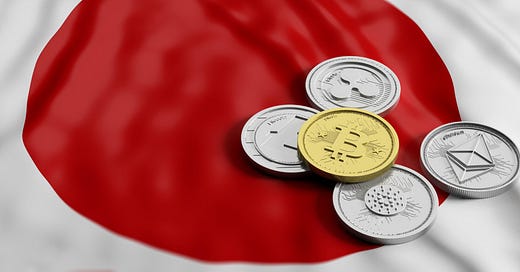Against the Tide of Other Major World Powers, Japan Wants Nothing to Do With CBDCs.
Bitcoin and cash will always be more trusted than a CBDC...
It turns out that the Japanese simply don't need a digital version of their national currency. The island's financial cyberspace is already teeming with a plethora of optimized, cheap banking services and fintech tools.
Cash is also still popular in Japan, with 80% of all purchases made in cash last year. The government wants to increase that to 60% by 2…
Keep reading with a 7-day free trial
Subscribe to Sylvain Saurel’s Newsletter to keep reading this post and get 7 days of free access to the full post archives.




